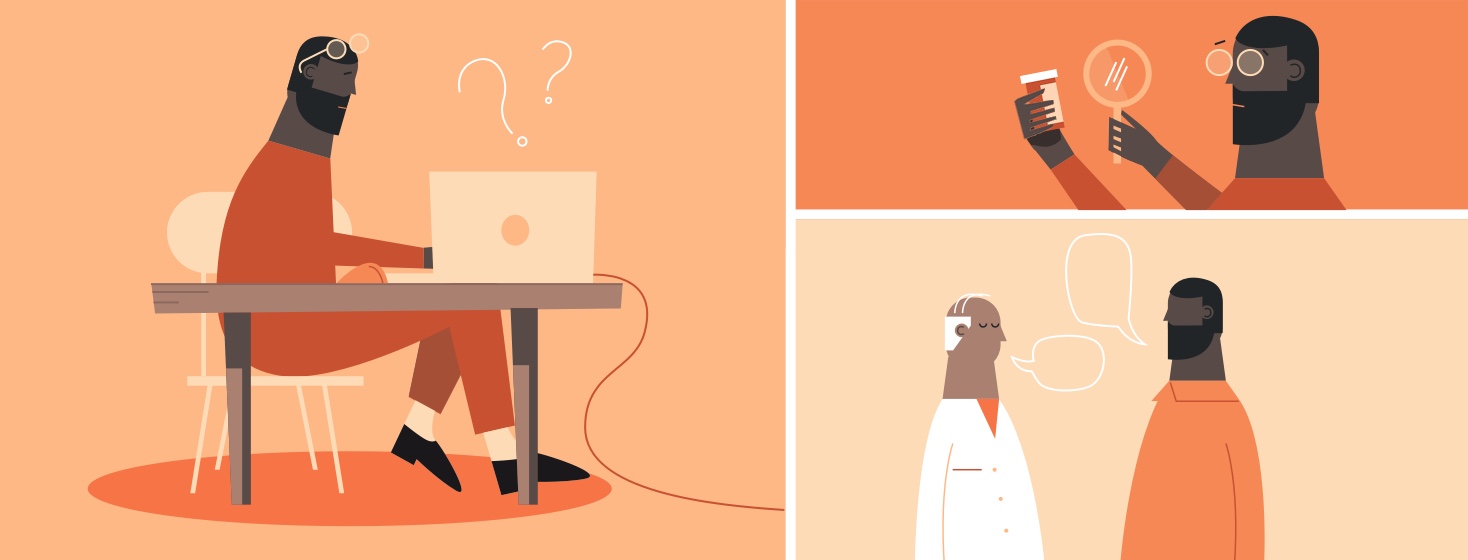SIBO Detective: Talking to Your Doctor about the Root of Your Condition
For those with IBS who have been clinically diagnosed and treated with antibiotics for Small Intestinal Bacterial Overgrowth (SIBO), the thought of a return of their symptoms can trigger great fear and anxiety. After a course of antibiotics that provided a dramatic improvement in symptoms, they may finally experience a huge physical and mental relief. For some people, this relief will be permanent, and SIBO will be gone from their lives for good. However, for others, SIBO returns, whether in one month or one year from initial treatment, and the uncomfortable symptoms set in all over again.
Can SIBO return?
Did they receive the wrong type or dosage of treatment, or was the underlying reason for SIBO developing not established? SIBO typically does not occur in a vacuum. The predisposing conditions it is linked to - and the importance of investigating underlying causes in order to find a lasting solution - are essential to address.
If you have been clinically diagnosed and treated with antibiotics for SIBO and your symptoms have disappeared for a long time, congratulations! This article is probably not for you. However, if you’ve been treated for SIBO and are still not feeling quite right, you’re feeling the same as before treatment, or even feeling even worse, you may consider whether you still have SIBO, and if so, what’s causing it.
For many people, a course of antibiotics provides a dramatic improvement in symptoms, which can be a substantial physical and mental relief. However, this relief is not necessarily permanent for everyone. In a study of patients receiving antibiotics for SIBO, about half experienced a recurrence of the overgrowth in less than 1 year. This is why it’s so important to discuss and determine the root cause of SIBO with your physician.
When antibiotics are a band-aid
Why does SIBO come back? SIBO can be associated with a variety of issues:1-4
- Intestinal motility disorders (pelvic flood dysfunction, IBS, gastroparesis)
- Intestinal nerve or muscle dysfunction, autoimmune diseases (diabetes, scleroderma, hypothyroidism, kidney disease), blind loop syndrome, unmanaged Celiac disease, and small intestinal diverticula
- Anything that interrupts the migrating motor complex (MMC), a wave that occurs normally every 90-120 minutes in a fasted state to clear bacteria out of the small intestine. However, when this action is impaired, bacteria and food can remain with the possibility of overgrowth of bacteria.
- Colon resectioning. The ileocecal valve (a passageway between the small intestine and large intestine) can pass bacteria from the large to the small intestine.
- Low stomach acid. Reduced stomach acid is part of aging, but can be the result of medication that reduces stomach acid.
Therefore, if underlying risk factors have not been addressed, such as chronic PPI use, motility disorders, GI structural abnormalities, gastric acid deficiencies, celiac disease, SIBO can continue to come back.5
Other issues could be a factor
Antibiotics were not right for you
- Dosage was too low
- The dosage was not taken in its entirety
- A different antibiotic is needed than prescribed – there are different types of antibiotics and many different strains of bacteria! Doctors don’t typically know your exact overgrowth profile, so a mismatch is possible.
A natural antibiotic/naturopathic prescription was taken
There is a lack of strong research in this area and many dangers of taking unregulated supplements to “heal” from SIBO. The myth? SIBO is caused by (or treated with!) diet. SIBO is NOT caused by diet according to current research. It is caused by an underlying risk factor. Taking antibiotics and then eating healthfully (ie, high-sugar diet) is not what causes reoccurrence. Certain foods, such as high FODMAP foods, may exasperate your symptoms, but there is NO evidence of food itself causing SIBO.
You can still work with a registered dietitian to help manage symptoms through diet, such as modifying textures, fat content, and carbohydrate types (ie, low FODMAP diet), but there is no scientific evidence you can cause or rid yourself of SIBO through diet alone.
Questions or concerns to discuss with your doctor
You are bound to still have questions. Here are some things to consider when you talk to your doctor about SIBO:6-9
- "Can you tell me more about the antibiotic I took and why?"
- "I’m still not feeling well! I would like to figure out why I developed SIBO in the first place. What are some possibilities? Can we look into/test for those?"
- Interesting fact: Conditions associated with SIBO and shown to improve with SIBO treatment include Parkinson’s disease, restless leg syndrome, fibromyalgia, rosacea.
- Remember, work with an MD to figure out the underlying cause! Going on continuous rounds of antibiotics is not sustainable, and neither is living with ongoing symptoms.

Join the conversation